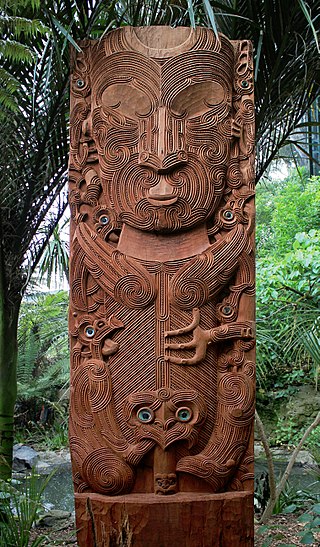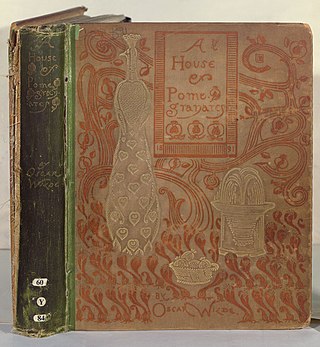
In ancient Greek religion and mythology, Demeter is the Olympian goddess of the harvest and agriculture, presiding over crops, grains, food, and the fertility of the earth. Although she is mostly known as a grain goddess, she also appeared as a goddess of health, birth, and marriage, and had connections to the Underworld. She is also called Deo (Δηώ). In Greek tradition, Demeter is the second child of the Titans Rhea and Cronus, and sister to Hestia, Hera, Hades, Poseidon, and Zeus. Like her other siblings but Zeus, she was swallowed by her father as an infant and rescued by Zeus.

Hades, in the ancient Greek religion and mythology, is the god of the dead and the king of the underworld, with which his name became synonymous. Hades was the eldest son of Cronus and Rhea, although this also made him the last son to be regurgitated by his father. He and his brothers, Zeus and Poseidon, defeated their father's generation of gods, the Titans, and claimed joint rulership over the cosmos. Hades received the underworld, Zeus the sky, and Poseidon the sea, with the solid earth available to all three concurrently. In artistic depictions, Hades is typically portrayed holding a bident and wearing his helm with Cerberus, the three-headed guard-dog of the underworld, standing at his side.

The Völsunga saga is a legendary saga, a late 13th-century poetic rendition in Old Norse of the origin and decline of the Völsung clan. It is one of the most famous legendary sagas and an example of a "heroic saga" that deals with Germanic heroic legend.

Mythology of the Haudenosaunee includes the creation stories and folktales of the Native Americans who formed the confederacy of the Five Nations, later the Six Nations. Historically, these stories were recorded in wampum and recited, only being written down later. In the written versions, the spellings of names differ due to transliteration and spelling variations in European languages that were not yet standardized. Variants of the stories exist, reflecting different localities and times.

In Māori mythology, Tāne is the god of forests and of birds, and the son of Ranginui and Papatūānuku, the sky father and the earth mother, who used to lie in a tight embrace where their many children lived in the darkness between them.

Pelleas, or Pellias, is an Arthurian Knight of the Round Table whose story first appears in the Post-Vulgate Cycle. He becomes the husband of Nimue, the Lady of the Lake in Le Morte d'Arthur. His character might have been connected to the figure of Pwyll, the fairy Rhiannon's human husband in Welsh mythology.

A House of Pomegranates is a collection of fairy tales written by Oscar Wilde published in 1891 as a second collection for The Happy Prince and Other Tales (1888). Wilde once said that this collection was "intended neither for the British child nor the British public."

The Labours of Hercules or Labours of Heracles are a series of tasks carried out by Heracles, the greatest of the Greek heroes, whose name was later romanised as Hercules. They were accomplished at the service of King Eurystheus. The episodes were later connected by a continuous narrative.

Firewing is a children's book written by the Canadian author, Kenneth Oppel. It is the third book in the series which also consists of: Silverwing, Sunwing and the prequel, Darkwing.

Bees have been featured in myth and folklore around the world. Honey and beeswax have been important resources for humans since at least the Mesolithic period, and as a result humans' relationship with bees—particularly honey bees—has ranged from encounters with wild bees to keeping them agriculturally. Bees themselves are often characterized as magically-imbued creatures, and their honey as a divine gift.
The Mwindo epic is an oral tale from the Congo told by the Nyanga people. The origins and creation of the Mwindo epic are mostly unknown since the story is only passed down orally. A version of the story was recorded by Kahombo Mateene and Daniel Biebuyck and published in 1969.
The Grateful Prince is an Estonian fairy tale.

Go I Know Not Whither and Fetch I Know Not What is a Russian fairy tale collected by Alexander Afanasyev in Narodnye russkie skazki.
Prâslea the Brave and the Golden Apples is a Romanian fairy tale collected by Petre Ispirescu in Legende sau basmele românilor.

The Punica is a Latin epic poem in seventeen books in dactylic hexameter written by Silius Italicus, comprising some twelve thousand lines. It is the longest surviving Latin poem from antiquity. Its theme is the Second Punic War and the conflict between the two great generals Hannibal and Scipio Africanus. The poem was re-discovered in either 1416 or 1417 by the Italian humanist and scholar Poggio Bracciolini.

Black Gold is a 2011 epic historical war film, based on Hans Ruesch's 1957 novel South of the Heart: A Novel of Modern Arabia. It was directed by Jean-Jacques Annaud, produced by Tarak Ben Ammar and co-produced by Doha Film Institute. The film stars Tahar Rahim, Antonio Banderas, Freida Pinto, Mark Strong and Riz Ahmed.

The Sea Tsar and Vasilisa the Wise is a Russian fairy tale published by author Alexander Afanasyev in his collection of Russian Fairy Tales, numbered 219. The tale features legendary characters Tsar Morskoi and Vasilisa the Wise.
Yasmin and the Serpent Prince is a Persian folktale published in 1974 by author Forough Hekmat. It is related to the international cycle of the Animal as Bridegroom or The Search for the Lost Husband, in that a human princess marries a supernatural husband or man in animal form, loses him and has to seek him out.














